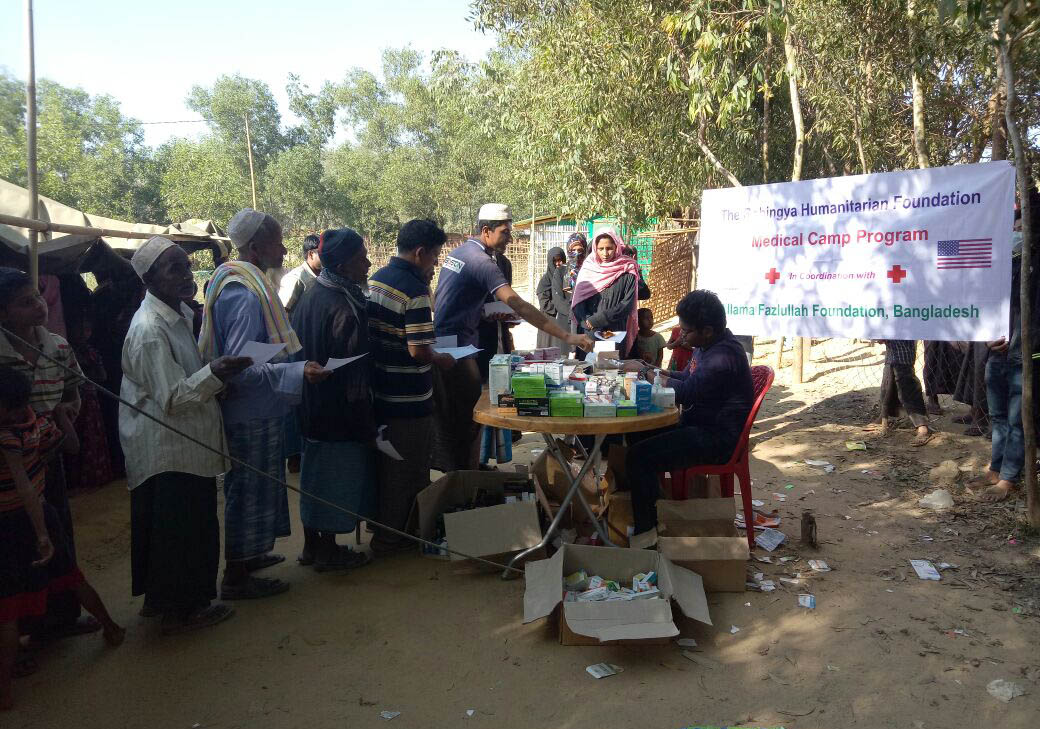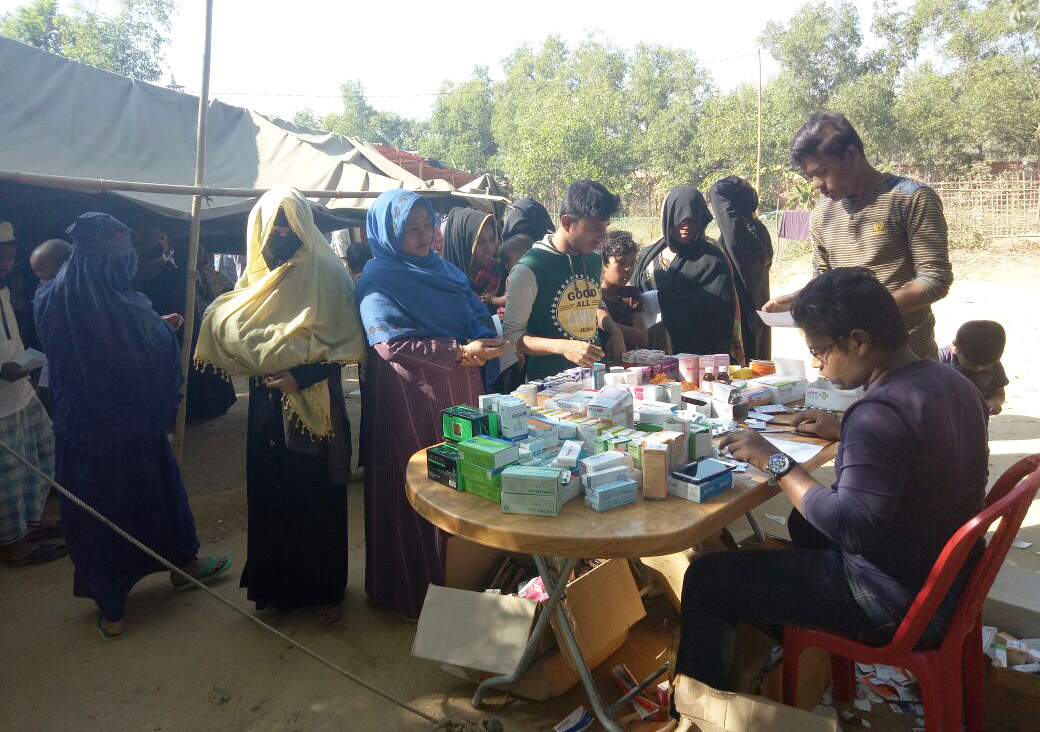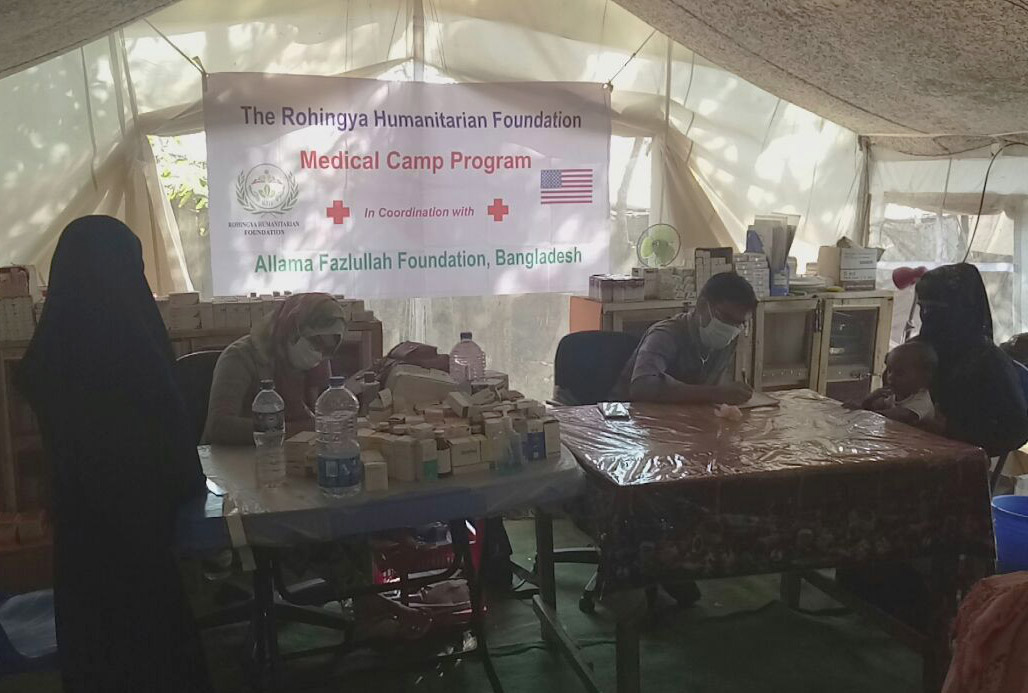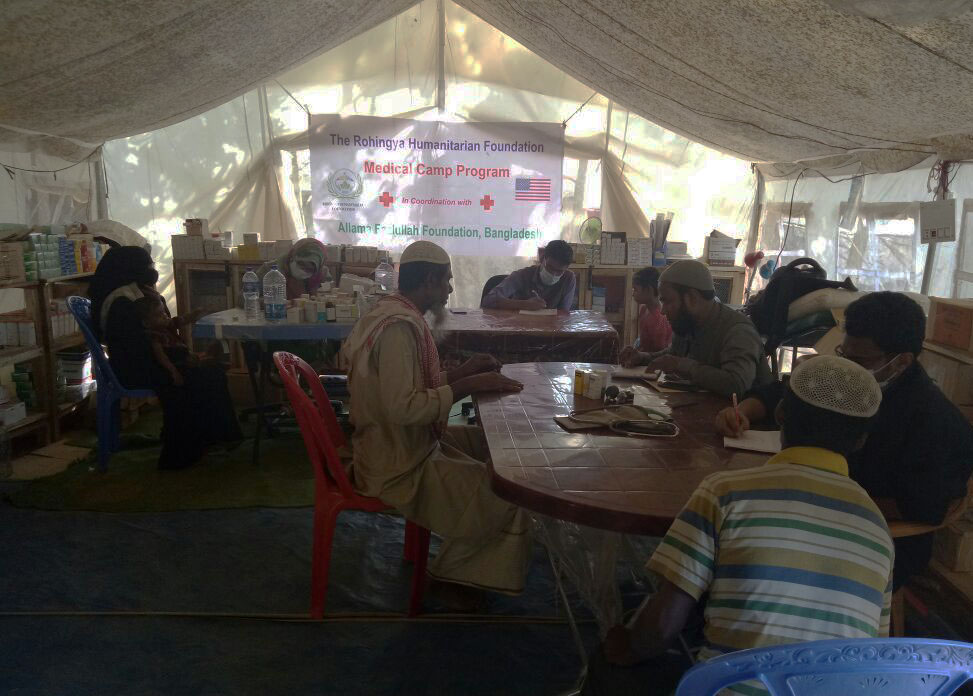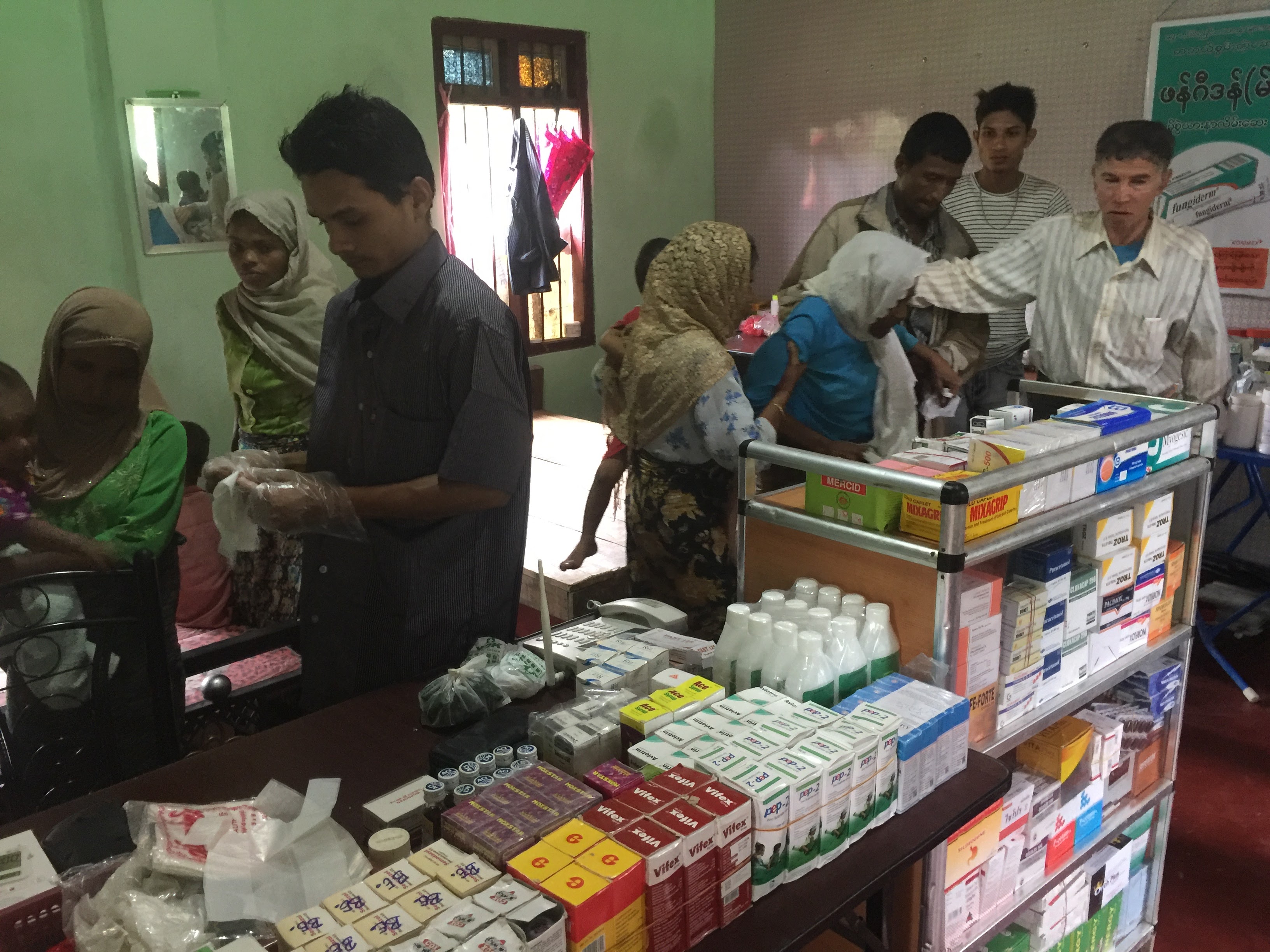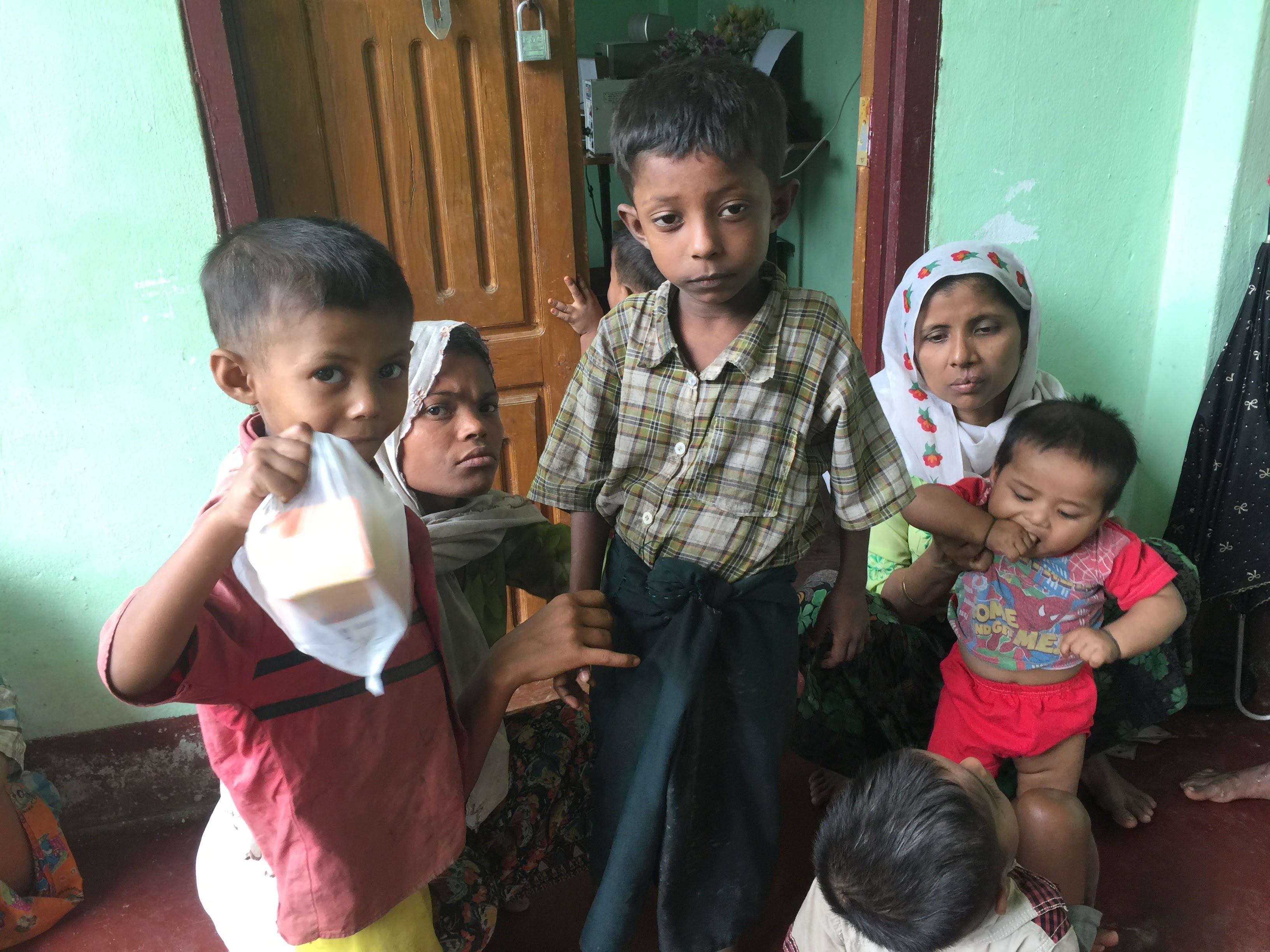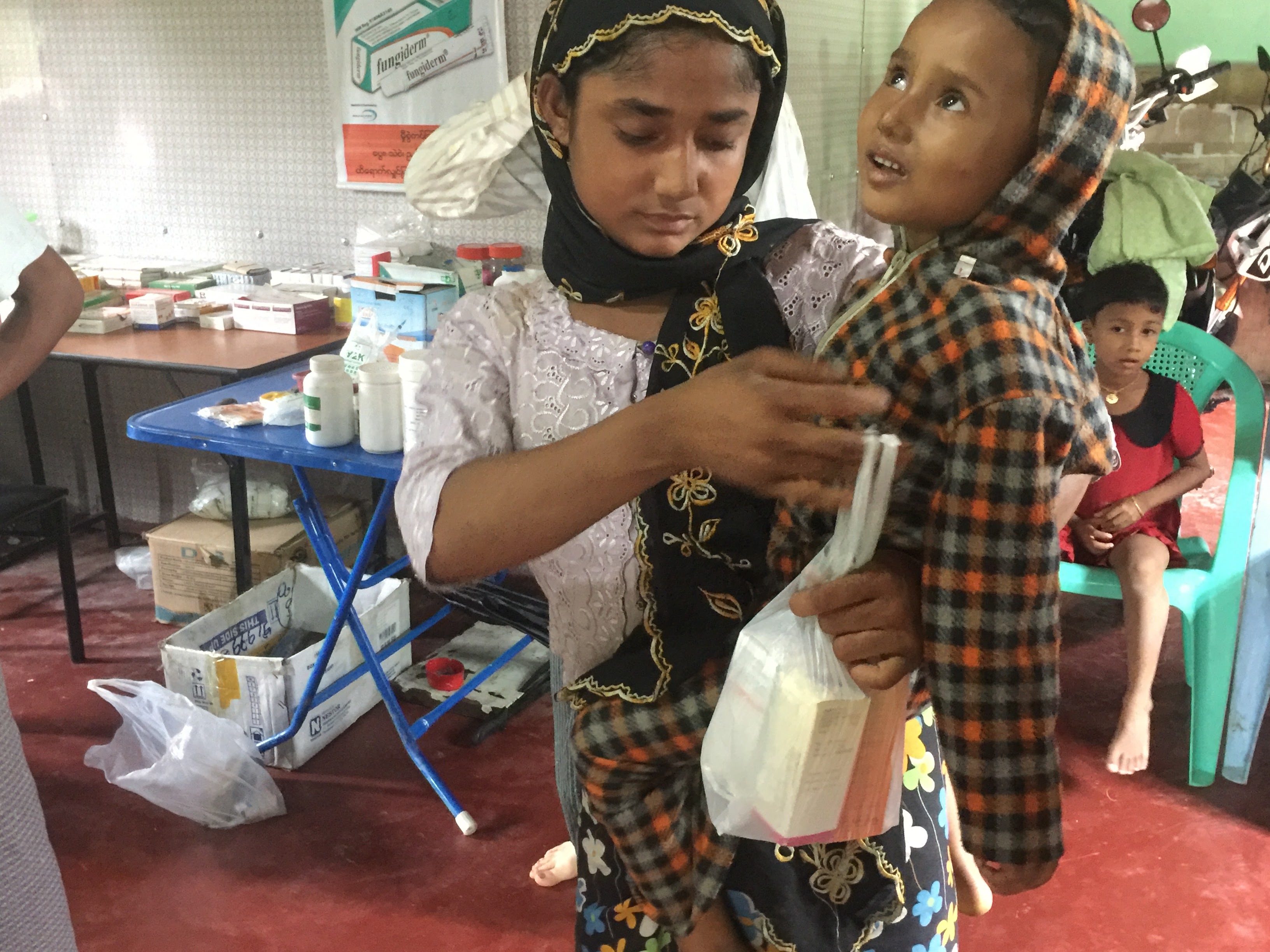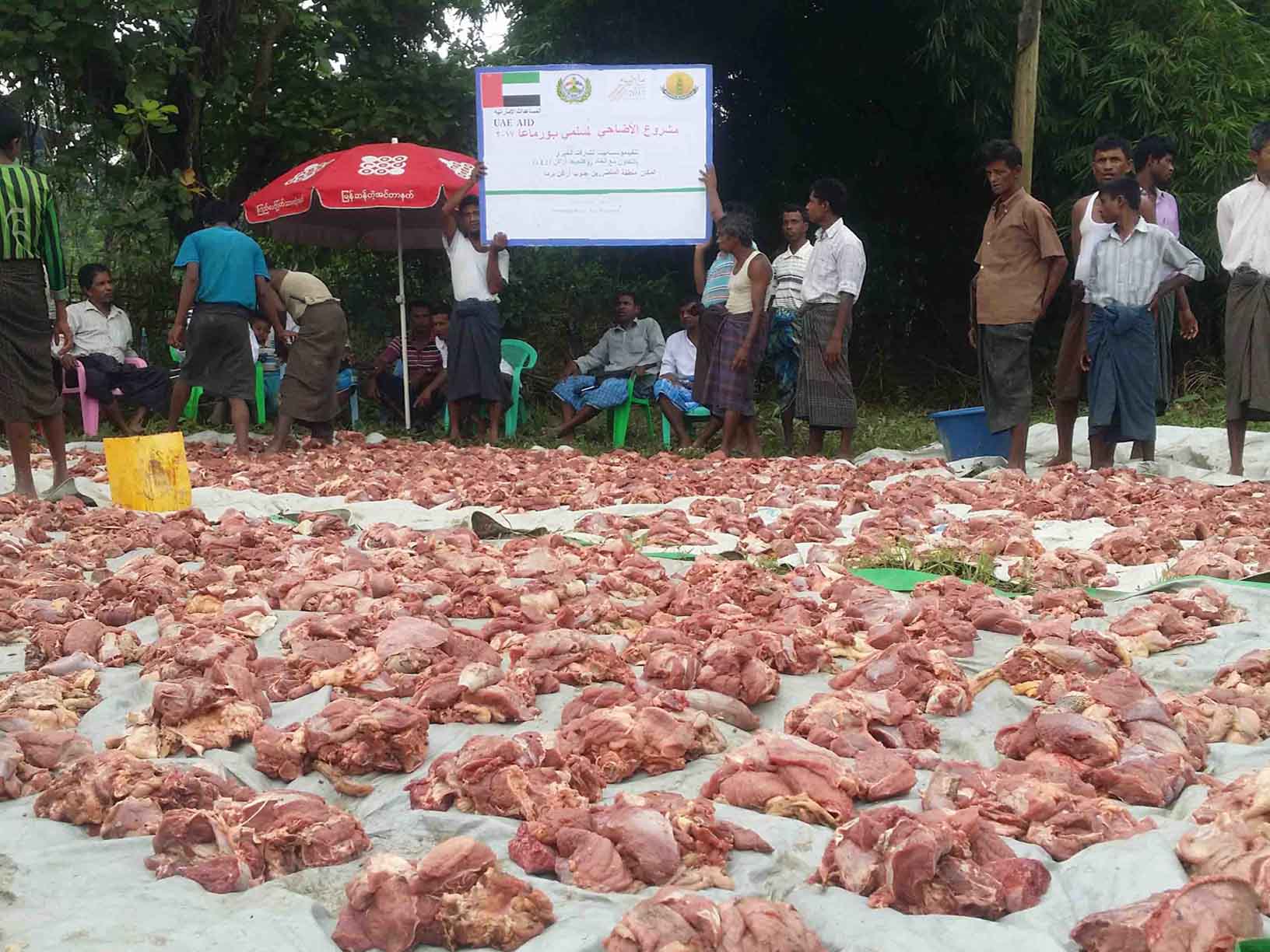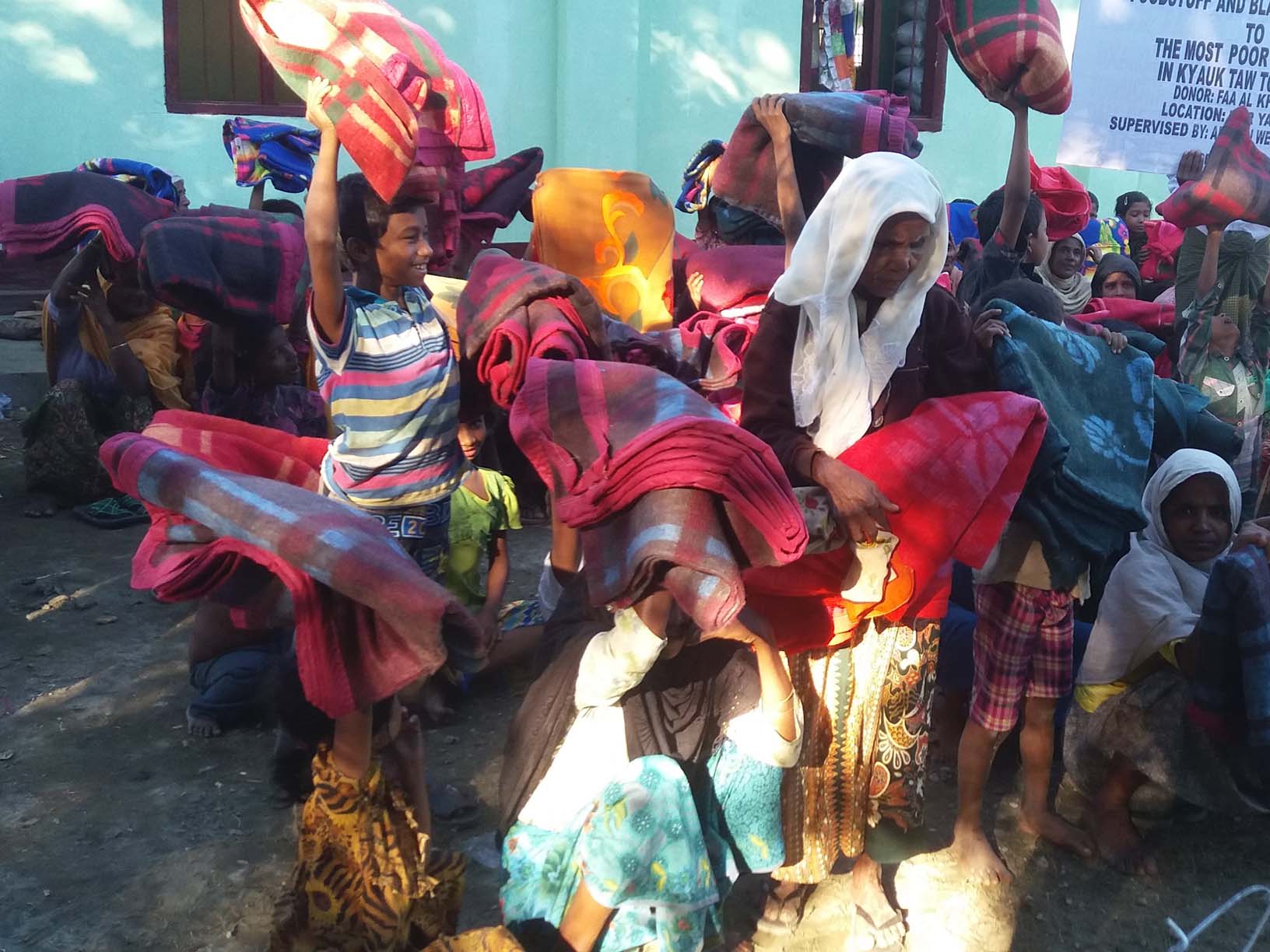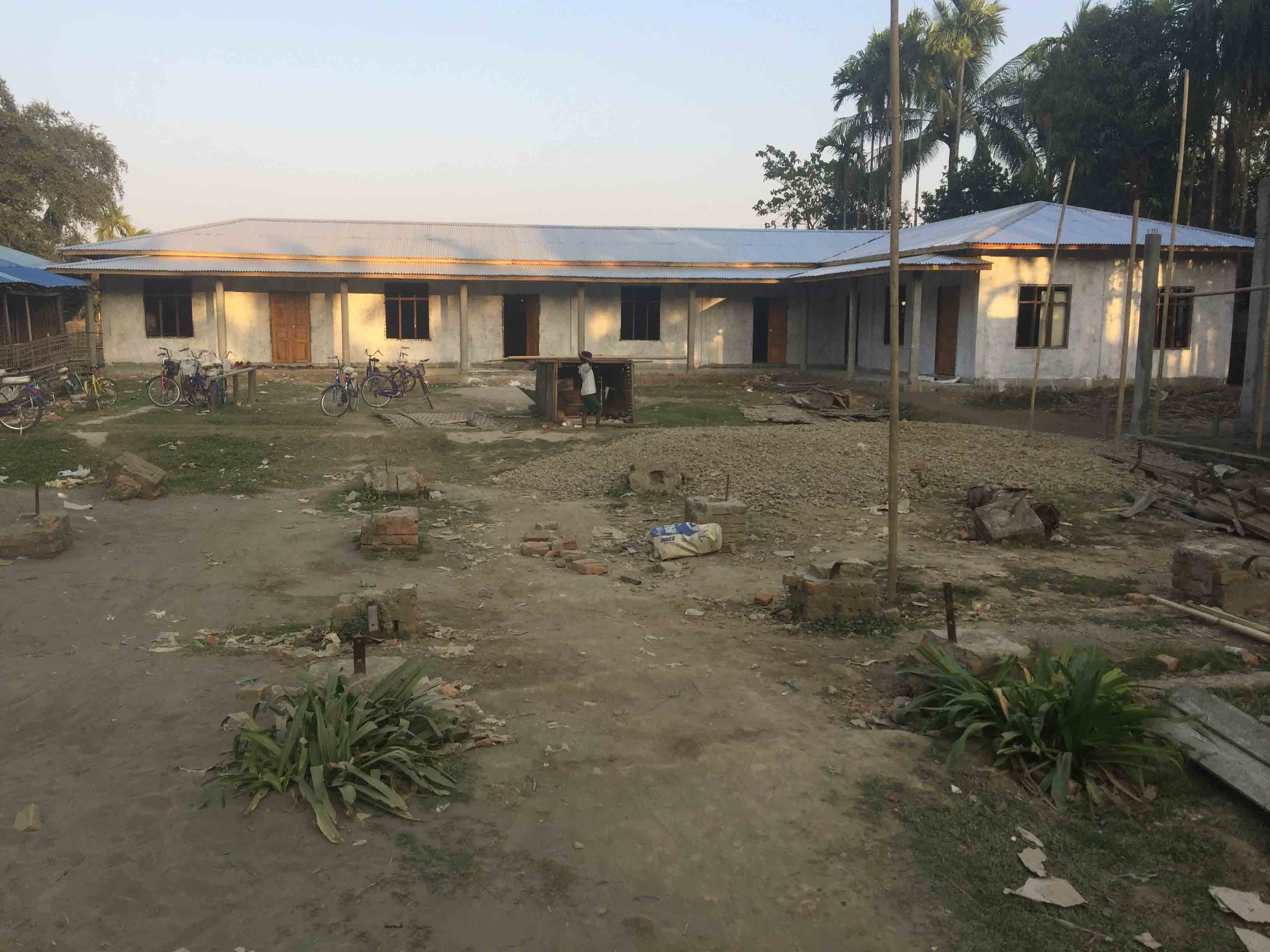-

Terrible wounds
Rohingya refugees Mohamed Heron, 6, and his brother Mohamed Akter, 4, display burns on their bodies at Kutupalong refugee camp, near Cox's Bazar in Bangladesh, Oct 14, 2017. The boys' uncle, Mohamed Inus, said the burns resulted from Myanmar's armed forces firing rockets at their village. (Reuters)
-

People cross a bamboo bridge over a stream as the sun sets on Oct. 13, 2017 at the Kutuplaong refugee camp, Cox’s Bazar, Bangladesh. Photo: Paula Bronstein/Getty Images
-

Rohingya wait in line for hours as an emergency food distribution is organized by the World Food Program and Save the Children. Rice, lentils, sugar, salt, and oil are given out, Oct. 7, Kutupalong, Cox’s Bazar, Bangladesh. Photo: Paula Bronstein/Getty Images
-

Women are seen behind a mosquito net on Sept. 29 in Kutupalong refugee camp, Bangladesh. Photo: Paula Bronstein/Getty Images
-

A man hits anxious Rohingya children with a cane during a humanitarian aid distribution while monsoon rains continue to batter the area causing more difficulties, Oct. 7, Thainkhali camp, Cox’s Bazar, Bangladesh. Photo: Paula Bronstein/Getty Images
-

Thousands of Rohingya refugees fleeing from Myanmar walk along a muddy rice field after crossing the border in Palang Khali, Cox’s Bazar, Bangladesh. Photo: Paula Bronstein/Getty Images
-

Aneta Begum, 25, is treated for a head injury by staff member Jacqueline Murekezi at a Doctors Without Borders clinic on Oct. 4, 2017 in Cox’s Bazar, Bangladesh. Doctors Without Borders has been providing comprehensive basic health care services at their Kutupalong clinic since 2009. Due to the current crisis, the clinic has expanded its inpatient capacity, dealing with approximately 2,500 outpatient treatments and around 1,000 emergency room patients per week. Photo: Paula Bronstein/Getty Images
-

Patients wait for testing and medical treatment for tuberculosis at the Doctors Without Borders Kutupalong clinic on Oct. 4, 2017 in Cox’s Bazar, Bangladesh. Photo: Paula Bronstein/Getty Images
-

A severely malnourished and premature baby, 15 days old, is treated in the pediatric-neonatal unit at the Doctors Without Borders Kutupalong clinic on Oct. 4, 2017 in Cox’s Bazar, Bangladesh. Doctors Without Borders has been providing comprehensive basic health care services at this clinic since 2009. Photo: Paula Bronstein/Getty Images
-

Sajida Begum, 18, sits in her makeshift tent, washing rice for dinner as smoke catches the late-afternoon light, Sept. 25, 2017 in Thainkhali camp, Cox’s Bazar, Bangladesh. Photo: Paula Bronstein/Getty Images
-

Hasina Begum, age 18, holds her newborn baby, 8 days old, born while she was walking in the forest escaping from Myanmar, Sept. 29, 2017 in Kutupalong, Bangladesh. She is now living in a makeshift shelter packed with new arrivals. Photo: Paula Bronstein/Getty Images
-

Boats full of people continue to arrive along the shores of the Naf River as Rohingya come in the safety of darkness Sept. 30, on Shah Porir Dwip Island, Cox’s Bazar, Bangladesh. Photo: Paula Bronstein/Getty Images
-

Madia Khatun, a relative, grieves next to the bodies of five children, after an overcrowded boat carrying Rohingya fleeing Myanmar capsized overnight, killing about 12 people, Oct. 9, on Shah Porir Dwip Island, Cox’s Bazar, Bangladesh. Photo: Paula Bronstein/Getty Images
-

The body of a Rohingya woman lays on a beach washed up after a boat sunk in rough seas off the coast of Bangladesh carrying over 100 people Sept. 28 close to Patuwartek, Inani beach, Bangladesh. Seventeen survivors were found along with the bodies of 15 women and children. Photo: Paula Bronstein/Getty Images
The Forgotten People
The Most Persecuted in the World
Rohingya ethnic minority in Myanmar is the most persecuted group in the world, according to the United Nations. The very existence of the Rohingya ethnic minority in Burma/Myanmar is under serious threat. Recent systematic onslaught against the Rohingya civilian population by the Myanmar military is a “textbook example of ethnic cleansing’, and fits the profile of a ‘Genocide’. The forceful displacement of Rohingya people is the fastest growing refugee crisis in the world. The exodus of August 2017 has caused displacement of more than a million Rohingya. The situation in camps in Bangladesh and inside Arakan, Myanmar, is dire. The horrendous living conditions and extremely poor sanitation have become a major humanitarian crisis. There is an immediate need for food, clean water, medicine, blankets, clothing, and other basic necessities. With limited resources, the Rohingya Humanitarian Foundation (RHF) has stretched its last dollars to provide support for the refugee mothers, children, elderly, and others. Your caring will give them tremendous hope that you truly care. Do not let their hope and strength fade away. Your generous donation can help a family survive the harsh living conditions, diseases, malnutrition, and psychological trauma. You can be rest assured that every donation will be pivotal in providing care to the refugees. Help save the Rohingya!

